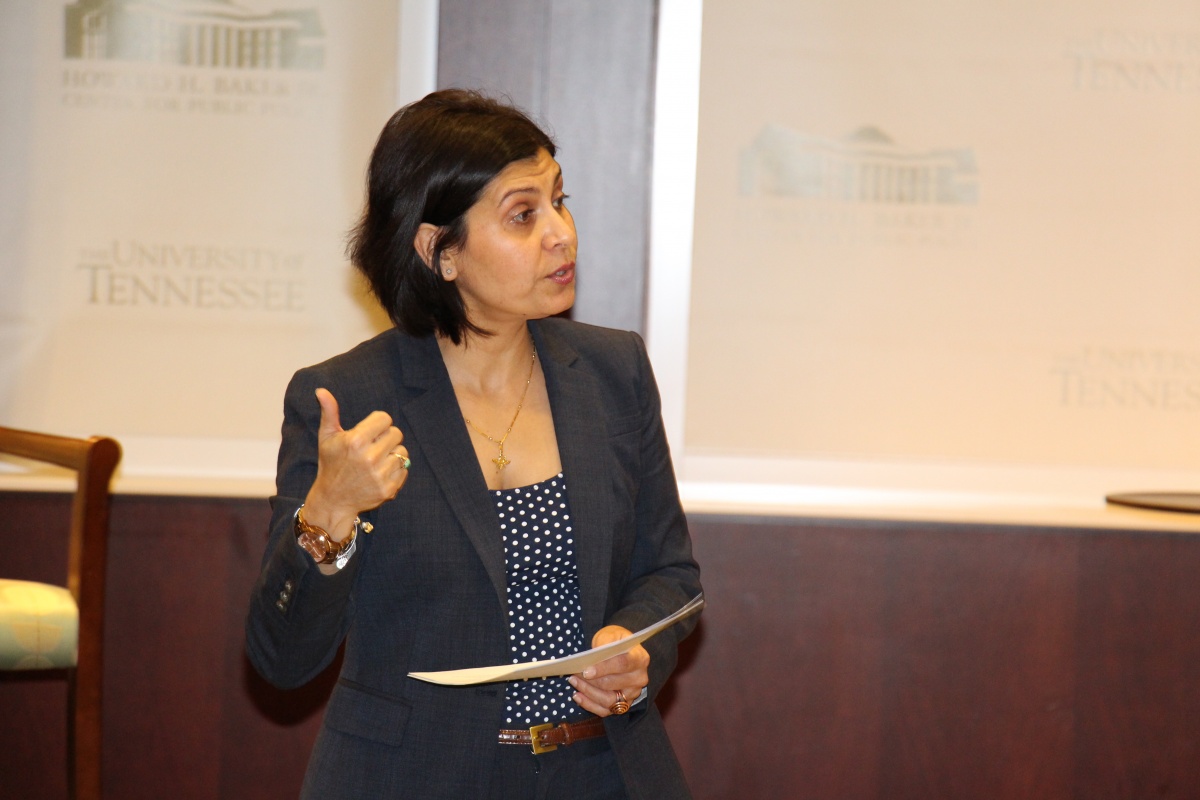
Dr. Huban Gowadia delivers remarks at the University of Tennessee.
Last week, I had the honor of speaking to faculty and students at the University of Tennessee’s Institute for Nuclear Security, a key university partner of the U.S. Department of Homeland Security’s Domestic Nuclear Detection Office (DNDO). At DNDO, we are focused on preventing nuclear terrorism, and academia is critical in helping to build enhanced nuclear detection and forensics capabilities and developing the next generation of nuclear scientists that will help us make nuclear terrorism a prohibitively difficult undertaking.
At the lecture, I was joined by faculty and students from interdisciplinary backgrounds. I challenged students to begin thinking about the technical problems we face and to seek solutions with real world applications such as how we can improve enhanced wide area search capabilities; how we can ensure that detection equipment is both effective and affordable; and how we can best advance our already substantial capabilities in nuclear forensics to support rapid attribution of nuclear events. During the lively lecture, we discussed academia’s contributions to the development of enhanced capabilities to prevent nuclear terrorism.
In particular, the University of Tennessee is actively engaged in two of DNDO’s grant programs – the Academic Research Initiative and National Nuclear Forensics Expertise Development Program.
The Academic Research Initiative invests in multi-year, leading-edge research at academic institutions in order to advance our detection and forensics capabilities. At the University of Tennessee, DNDO has funded research on improved detection of shielded highly-enriched uranium, and two projects to improve detector resolution while reducing the overall manufacturing costs.
The National Nuclear Forensics Expertise Development Program is the U.S. Government’s comprehensive effort to grow and sustain the uniquely qualified technical expertise required to execute the Nation’s nuclear forensics mission. The University of Tennessee is one of 23 participating universities in the program, which supports over 300 undergraduate to post-doctoral students and faculty in nuclear and geochemical science specialties relevant to nuclear forensics. In fact, one University of Tennessee student is currently a graduate fellow in the program. Since the program’s inception, 21 new Ph.D. scientists have been added to the workforce.
DNDO remains committed to advancing our Nation’s nuclear detection and forensics capabilities and supporting a sustained nuclear expertise pipeline by leveraging the expertise of academic institutions like the University of Tennessee.
To learn more about opportunities involving the Academic Research Initiative, please visit /academic-research-initiative.
Information on student programs under the National Nuclear Forensics Expertise Development Program is available for the following programs:
